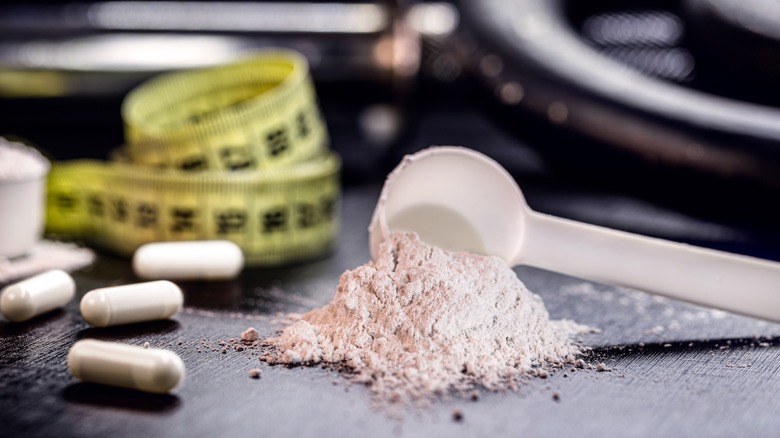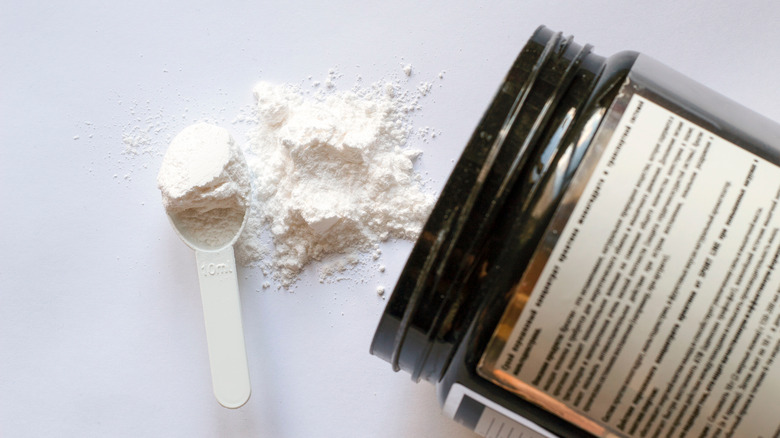Does Creatine Cause Acne?
Creatine is a popular supplement used to help athletes build muscle and power through tough workouts. According to Healthline, creatine is an amino acid that is naturally found in the muscles and the brain. It can also be synthetically produced. When taken as a supplement, creatine is said to help improve athletic performance, increase strength, and build muscle mass.
Creatine is able to help the body's ability to produce energy during exercise (via Mayo Clinic). When the body doesn't have enough energy, it can lead to fatigue. By taking a creatine supplement, you may be able to increase your body's energy production and reduce fatigue. This can help you power through tough workouts and improve your athletic performance. In addition to improving athletic performance, creatine has also been linked to a number of other potential health benefits including reducing inflammation, improving brain function, and potentially protecting against neurological diseases.
However, it is important to note that not much research has been done on the long-term effects of taking creatine. If you're considering taking a creatine supplement, be sure to speak with your doctor first to discuss whether it's right for you.
No, creatine doesn't cause acne
Because it can significantly help with athletic performance, some people categorize creatine as a steroid. Steroids can sometimes cause acne, which has led to the myth that creatine can cause acne (via Healthline). However, this is not true. There is no scientific evidence to support the idea that this supplement leads to acne or other skin problems.
In fact, creatine has actually been shown to potentially improve the skin. It may reduce wrinkles, sun damage, and sagging skin when taken consistently as a supplement. It can also improve your skin when applied topically as an ingredient in face lotion (via Nivea). The one possible connection between creatine and acne is actually sweat. This supplement can help you work out for longer periods of time, which can cause you to sweat more. This, in turn, may clog your pores and cause acne. However, this can be remedied by washing your face before and after a workout and avoiding pore-clogging makeup or skin products while you exercise.
Side effects of creatine
Although creatine does not cause acne, it does come with some potential side effects that all users should know about. According to Medical News Today, this supplement is safe when taken at moderate doses. When taken at high doses, it can cause stomach pain, nausea, muscle cramping, and diarrhea. Creatine can also cause weight gain due to water retention in the muscles. This weight will typically drop quickly once you stop taking the supplement.
People with kidney disease or diabetes are generally advised to avoid this supplement. Experts also recommend that people with deep vein thrombosis, electrolyte disorders, gastrointestinal disorders, kidney stones, and a number of other health conditions should not take creatine. If you have a health condition, speak with your health care provider before taking any new supplements. Even if you don't have any health concerns, it is always wise to speak with a doctor before taking any new vitamins or supplements.



